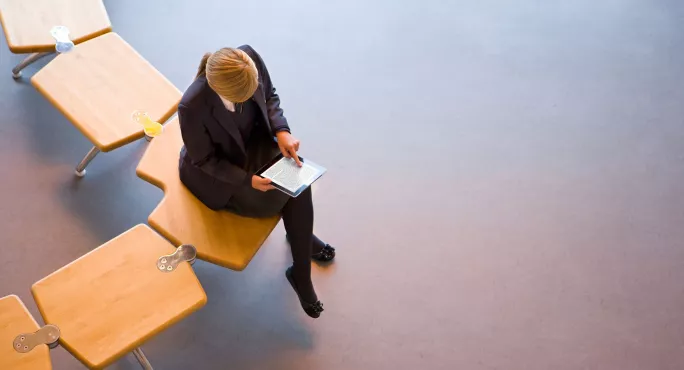The Department for Education has announced a mental health trial for pupils in hundreds of schools to coincide with the start of Mental Health Week.
Up to 370 schools are expected to join the study, which aims to gather evidence on which techniques are most effective in promoting wellbeing.
The DfE said it would be “one of the largest mental health trials in the world” both in terms of the number of schools involved and the number of interventions - five - being tested.
Pupils will take part in mindfulness exercises, relaxation techniques and breathing exercises to help them regulate their emotions, alongside pupil sessions with mental health experts.
The announcement marks the “second wave” of the study, which is being led Anna Freud National Centre for Children and Families in partnership with University College London.
Nine areas across the country will also trial new high-quality assessments for young people entering care, who are among the most vulnerable to mental health issues.
Rise in mental health problems
These pilots - backed by £1 million announced last year - will identify the wellbeing needs of these children, including whether a referral to a more specialist service is needed.
“The modern world has brought new pressures for children, while potentially making others worse,” said education secretary Damian Hinds.
“Schools and teachers don’t have all the answers, nor could they, but we know they can play a special role which is why we have launched one of the biggest mental health trials in schools.
“These trials are key to improving our understanding of how practical, simple advice can help young people cope with the pressures they face.”
The announcement comes as NHS staff are due to begin training to provide specialist mental health support to some 470,000 pupils.
Each of the first 59 teams will support up to 8,000 children and young people and will be responsible for a cluster of around 20 schools and colleges.
A major NHS report has revealed growing mental health problems among young people, particularly rising levels of emotional disorders.
The Department for Education has faced criticism for not offering more widespread support for pupil mental health in schools.
The government’s plan, laid out in a 2017 Green Paper, aims to roll out mental health services to 20 to 25 per cent of young people by the end of 2022-23.




